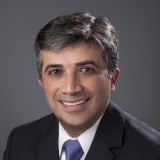 As I was packing for my trip to Toronto, I started putting collar stays in my shirts. Every time I do this, I think of Dr. Lawrence Cohn. Odd, why would collar stays be associated with a preeminent cardiac surgeon who was a past president of the AATS and trained countless cardiothoracic surgeons, myself included? It starts with a memory of me as a harried second year resident, showing up to the conference with my shirt collar sticking up. Dr. Cohn came up to me lifted up the collar and said, "You forgot something." It was early and I did not really process what he had said. Realizing this, he just pointed to my collar. “You forgot it, don’t do it again; every little detail counts.”
As I was packing for my trip to Toronto, I started putting collar stays in my shirts. Every time I do this, I think of Dr. Lawrence Cohn. Odd, why would collar stays be associated with a preeminent cardiac surgeon who was a past president of the AATS and trained countless cardiothoracic surgeons, myself included? It starts with a memory of me as a harried second year resident, showing up to the conference with my shirt collar sticking up. Dr. Cohn came up to me lifted up the collar and said, "You forgot something." It was early and I did not really process what he had said. Realizing this, he just pointed to my collar. “You forgot it, don’t do it again; every little detail counts.”
This past AATS was very personal to me. The last time I saw Dr. Cohn was in Toronto in 2014. Dr. David Sugarbaker was the AATS president and fittingly inducted me into the AATS. Dr. Sugarbaker, too, was about details. Knowing the patient, knowing the steps of the operation, and being prepared. With a clear vision and undeniable spirit, he had created a mini empire which I was fortunate to see develop as a medical student, surgical resident, and subsequent thoracic surgery fellow at the Brigham & Women’s Hospital. He tried to put a little of that spirit into each of his fellows.
Neither Dr. Cohen nor Dr. Sugarbaker were physically present this time. As I walked through the convention center, I saw their pictures. Former fellows and I talked how the whole thing felt odd without them. They both live on in the memories of their fellows and the lectureships and fellowships set us by the AATS. Yet, it is their emphasis on detail that is the most enduring.
As cardiothoracic surgeons, our field is constantly changing and, in some minds, being threatened by innovation. TAVR, Mitraclip, SBRT, and POEM are many of techniques out there that are challenging the surgical paradigm. It is not unreasonable to want treatments with no incisions, extensive hospital stays, or need for bypass. In other words, it is not unreasonable to not want surgery or at least surgery as we know it. In this environment, some may wonder if we will still have a job in the future?
But it is the attention to detail that will ultimately keep us in the game. Who knows how the inside of the human body works better than surgeons? Time after time, we see how the impact of surgical intervention on how the human body functions; not only in the short-term but also over time. Who better than surgeons than to anticipate the impact of devices or new "incision-less" technique on patients? It is no wonder that surgeons are the ones called to deal with complications when things don't go as planned.
Both Dr. Adams and Dr. David in their addresses discussed the need for innovation in our field. Dr. David emphasized knowing past techniques and outcomes and improving upon them. Dr. Adams spoke against complacency to fuel innovation. Attention to detail is the thread that binds both their addresses. Only through meticulously detailing what we do, and how our patients do because of it, can we make progress in our field. Whether it be in transcather valves or SBRT or ablation for lung cancers, as surgeons, we have to be involved and know the details of these procedures. We all have to make sure that our collar stays are in.
Image by Artem Oleshko / Shutterstock







